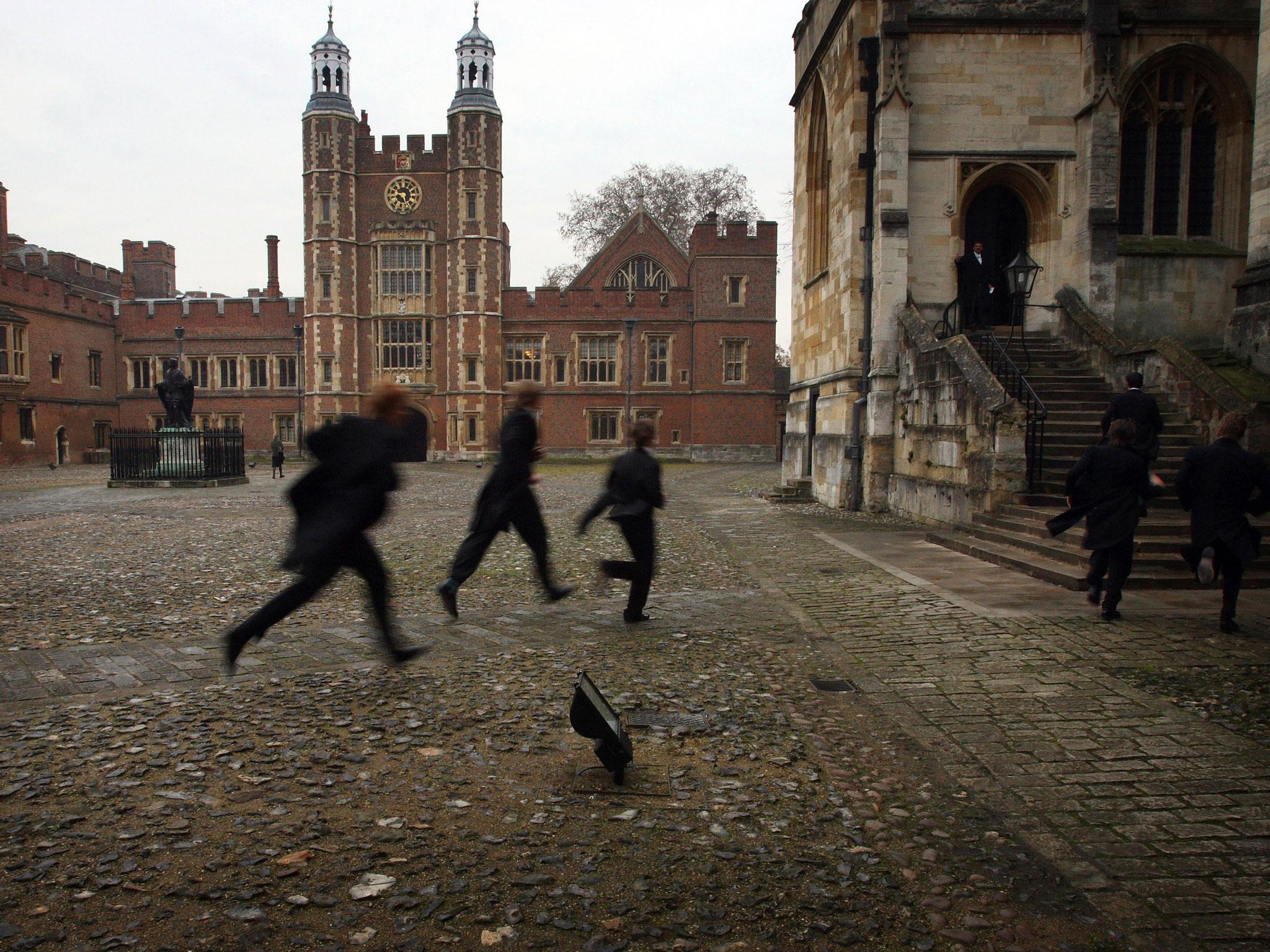Taxpayers fork out £500m every year to help children go to private schools

Your support helps us to tell the story
From reproductive rights to climate change to Big Tech, The Independent is on the ground when the story is developing. Whether it's investigating the financials of Elon Musk's pro-Trump PAC or producing our latest documentary, 'The A Word', which shines a light on the American women fighting for reproductive rights, we know how important it is to parse out the facts from the messaging.
At such a critical moment in US history, we need reporters on the ground. Your donation allows us to keep sending journalists to speak to both sides of the story.
The Independent is trusted by Americans across the entire political spectrum. And unlike many other quality news outlets, we choose not to lock Americans out of our reporting and analysis with paywalls. We believe quality journalism should be available to everyone, paid for by those who can afford it.
Your support makes all the difference.Up to £10m a week is spent by taxpayers on funding child benefit for private school pupils – or as much as half a billion pounds a year, it emerged last night.
Analysis by The Independent on Sunday shows there are an estimated 497,079 privately educated children, including those at David Cameron's old school Eton, currently receiving child benefit of between £13.40 and £20.30 a week, meaning the total weekly bill to taxpayers is between £6.7m and £10.1m, or between £346m and £525m a year.
Taxpayers are contributing between £17,420 and £26,390 every week in child benefit to the 1,300 pupils at Eton – or between £905,840 and £1.4m a year in benefits to the world's most prestigious school.
The striking figures will fuel the debate over whether George Osborne is right to axe the universal benefit and restrict it to parents on incomes below £60,000. From 7 January, families with one earner on more than £60,000 will lose the benefit altogether, while those with one earner on between £50,000 and £60,000 will have to pay back a proportion through the tax system. The vast majority of those private school pupils – excluding those on bursaries whose parents are on lower incomes – who currently receive child benefit will see it end next week.
Those in support of keeping universality insist that it is essential to include everyone in society to prevent welfare becoming associated only with the poorest families, and that it also penalises stay-at-home mothers, who receive the benefit directly into their bank account.
Yet the analysis will support the Chancellor and David Cameron's argument that, in a time of economic austerity, the wealthiest families do not need state handouts.
There are 563,000 children in independent schools. Of these, 26,376 are non-British pupils whose parents live abroad and are not entitled to child benefit. A further 39,545 pupils' parents pay reduced fees through means testing, and are therefore unlikely to earn more than £60,000. They have also been discounted from the 497,079 figure because they will be unaffected by the child benefit changes.
However, for an individual family, child benefit goes a small way to helping pay annual private school fees. While a family with one child currently receives £1,055.60 a year in child benefit, the average cost of private school is £13,788. At Eton the annual cost is £32,067. A Family Finances Report by Aviva last year found that families who send their children to private school spend 12 per cent of their income on fees.
A Treasury spokesman said: "The Government is delivering child benefit reforms as simply and fairly as possible. Eighty-five per cent of families with children will continue to receive child benefit in full and see cash rises next year, but those with the broadest shoulders should carry the greatest burden as we deal with Labour's deficit."
Join our commenting forum
Join thought-provoking conversations, follow other Independent readers and see their replies
Comments